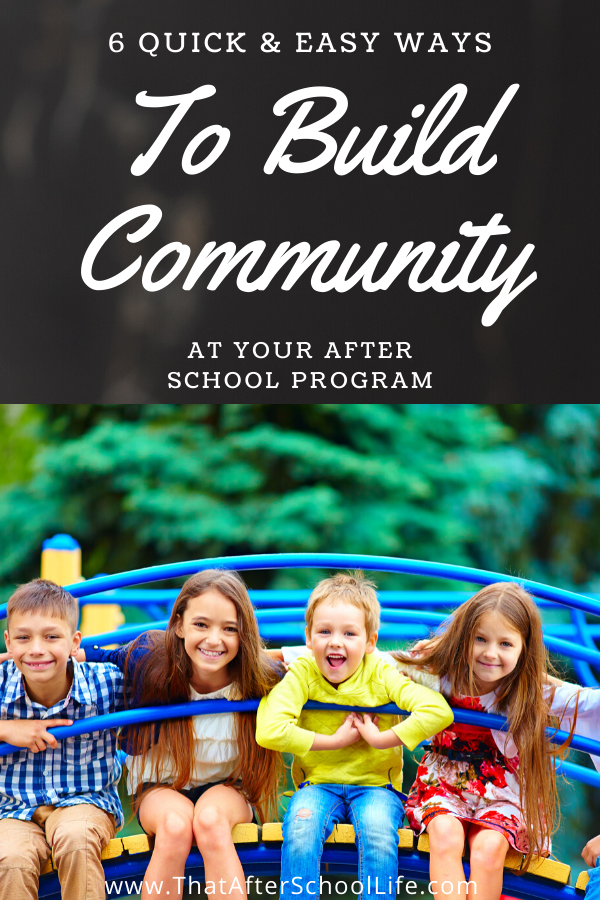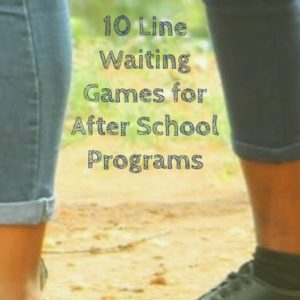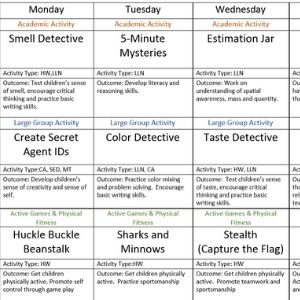Programs that successfully build a strong community, create a space that breads respect and acceptance. Follow these tips to build a culture of respect in your after school program. Below are a few tips to get your program off on the right foot.
Snack time
Snack time is an often overlooked opportunity to build a culture of respect. This time offers children an opportunity to sit down, unwind and talk to others in a natural environment. Nowadays, it is hard for families to find time to sit down and eat dinner together, and during school kids rush in and out of the cafeteria for lunch. In our culture of rushing around, we find ourselves eating on the run.

Kids are missing out on the experience of a sit down dinner and the social elements of eating a meal. This is where you come in. Your program may be the only opportunity these kids have to sit down and talk about their day in a casual enjoyable way. Your after-school program should allow enough time for children to eat and socialize. This is a great opportunity for children to build connects and bonds with each other.
Tips to build a culture of respect at Snack Time
Serve snack family style. This means you set the food on the table the same way you would if you were at home. This forces kids to practice manners and use social skills when they need something. Asking a friend to pass the bowl of peaches subtlety begins to build an environment of respect and community.
Table Topics
As an after school teacher you can use snack time as an opportunity to facilitate conversations and build community in your after school program. Create a conversation of the day similar to the game table topics. Table topics can be something as simple as what’s your favorite food? Or what’s your favorite school subject? but as children get to know each other, you can make the table topic conversation deeper. Such as what would you do if you saw someone being bullied? or how do you know if someone is a good friend?
Clean Up
Snack clean up can be a chore. Ask children to help you clean up the area after snack. Get someone to sweep and someone to wipe down tables. (I have had greater success asking children to help, than creating a job chart when children have to help) When children help clean up it creates ownership of the space. And when children feel ownership, they will respect the space more.
STEM Activities
Science, technology, engineering and math are all subjects in school, but they are more than that. STEM projects ask children to use critical thinking skills in problem solving. It allows kids to explore their world in a structured and safe environment.
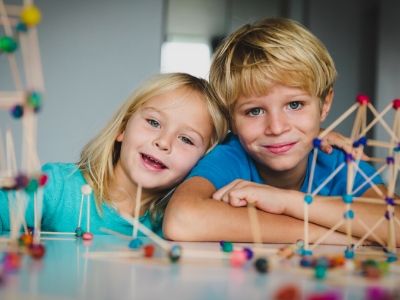
So how can stem help build a culture of respect in your after school program?
I absolutely 1000% believe STEM activities can help build community in your program. Planning regular STEM projects can get kids working together and problem solving; two components that can help build community. When children asked to collaborate in STEM activities, it incites conversation and teamwork. It is amazing when you see a group of children (who are not necessarily friends) work together to accomplish a task. STEM activities require children to work together towards a common goal. When you break children into teams and give them a task to complete it goes one of two ways.
The kids work great together and develop friendships as they complete a task and share the feeling of a job well done. Or..
The children have a conflict; you help them work through their conflict and in the end they can share the feeling of accomplishment from a job well done.
Either way, the kids will feel good about what they did and the people they worked with to accomplish it. Check out our list of amazing stem activities for ideas.
Group Games
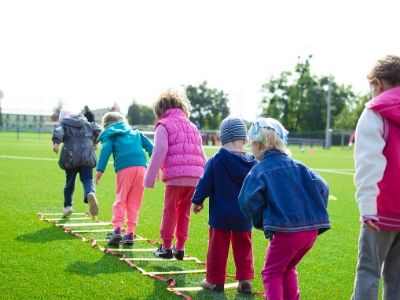
When I say group games, I mean physically active group games. Games can bring people together and tear them apart. So building community through active games can require some guidance. In the first couple of weeks of a program, or whenever you want to start building community, focus on games that promote teamwork and collaboration. Review the rules and expectations with children before you start any games and do this every day.
Focus on Teamwork and Respect through games
Splitting up teams. Split up children into teams that are as fair as possible. Let’s say you are playing capture the flag. Have children spend two to four minutes before the game starts to talk with their teammates and develop a plan of attack. Once both teams have a plan, have players shake hands as a sign of respect. Let them play!
Build a Culture of Respect in Your After School Program Through Game Rules
Be ready to step in and completely stop the game when there is a disagreement on the rules. Bring everyone together and decide as a group what the rule will be from then forward. For example, a child may yell “No puppy guarding the flag!” When you hear this stop the game. Ask everyone should their or should there not be puppy guarding and what that look likes. Once everyone agrees on what is fair, they put a new rule in place and game play can continue. When the game is over have players again shake hands.
Allowing children to have a say in the rules of the game creates a community where kids feel empowered and respected. No one can argue that the game was unfair when they are the ones who created the rules.
Use Photography Projects to Build community in your After School Program

One way you can promote community within your program is to include photo projects that children have created. These projects should include actual photographs of the children in your program. You could create a funny face contest, or a hidden object game that features the children in your care. Whatever project or activity you choose, display the project in your program space.
Why would I want photos of kids in my program?
Children need to see themselves reflected in your program. See themselves, or others who look like them makes kids feel like they belong and that they are part of something bigger than themselves, in this case your after-school programs community. If for whatever reason you cannot take pictures of children, have them draw pictures of themselves and hang them up in your program space, or hang photos of children who represent the children in your care.
Build a Culture of Respect in Your After School Program through families involvement

Create an environment where parents and families feel welcome and part of your program community. Get to know parents as parents, but also as people. When families feel you have taken a genuine interest in their family, they feel part of your community. You can get parents involved in several ways. Here are a few ideas I have used:
- Host a monthly guest reader day, where you ask a parent, sibling or grandparent of a child in your program to come read a book to the kids.
- Get families involves by hosting family nights. See our list of family nights ideas here.
- Host open gyms from the Winter. Keep the gym open an extra hour for families to run around and play for a while before heading out into the cold again.
Any of these situations will allow parents to feel welcome and an important part of your program.
Accept Input from Kids
Ask for input from the children. When kids feel ownership of the program they will feel part of a larger community. Kids thrive in After School when they feel part of something larger than themselves. You can accomplish these through programming and rule setting.
Create a Constitution to build a Culture of Respect in your after school program
Draft a constitution with the kids, allow them to develop the rules for your program. When they have written a thorough document have everyone sign the constitution stating that they understand and will follow the rules. This allows kids to take ownership of the program from the beginning.
Incorporate Interests into Program Planning

Ask for input on program planning ideas to improve the community at your after school program. It’s a good idea to have the children or parents fill out an interest survey. This allows you to plan activities that children will really enjoy and expose kids to new experiences and ideas. Know the kids you work with. Sometimes taking their input means observing and listening to kids.
For example, if a kid in your program is really into dinosaurs do a theme week on dinosaurs. Or if the kids are suddenly into Harry Potter do a Harry Potter themed week. Kids are unlikely to come to you and say “I want to do a Harry Potter themed week.” You need to know the kids, what their interests are and what they enjoy. When they feel like they’re being supported as individuals they will be happier and more easily fee a part of your after school community.
Conclusion
My experience with building community is wrapped up here in this short article. While I make it seem like just a few steps, it takes work. I hope these tips will give you some direction in building community within your program.

